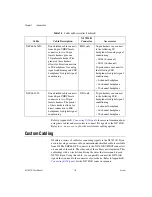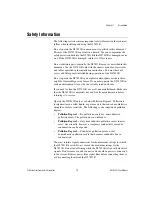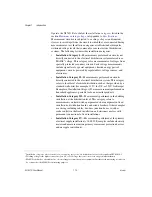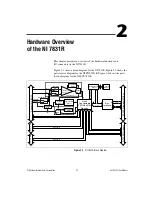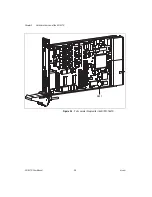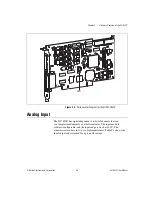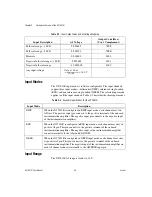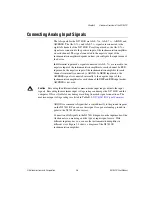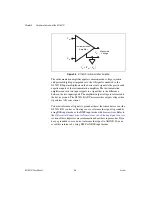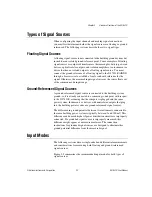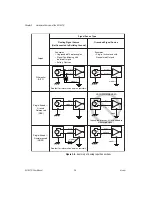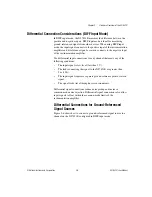
Chapter 2
Hardware Overview of the NI 7831R
©
National Instruments Corporation
2-9
Differential Connection Considerations (DIFF Input Mode)
In DIFF input mode, the NI 7831R measures the difference between the
positive and negative inputs. DIFF input mode is ideal for measuring
ground-referenced signals from other devices. When using DIFF input
mode, the input signal connects to the positive input of the instrumentation
amplifier and its reference signal, or return, connects to the negative input
of the instrumentation amplifier.
Use differential input connections for any channel that meets any of the
following conditions:
•
The input signal is low-level (less than 1 V).
•
The leads connecting the signal to the NI 7831R are greater than
3 m (10 ft).
•
The input signal requires a separate ground-reference point or return
signal.
•
The signal leads travel through noisy environments.
Differential signal connections reduce noise pickup and increase
common-mode noise rejection. Differential signal connections also allow
input signals to float within the common-mode limits of the
instrumentation amplifier.
Differential Connections for Ground-Referenced
Signal Sources
Figure 2-6 shows how to connect a ground-referenced signal source to a
channel on the NI 7831R configured in DIFF input mode.




